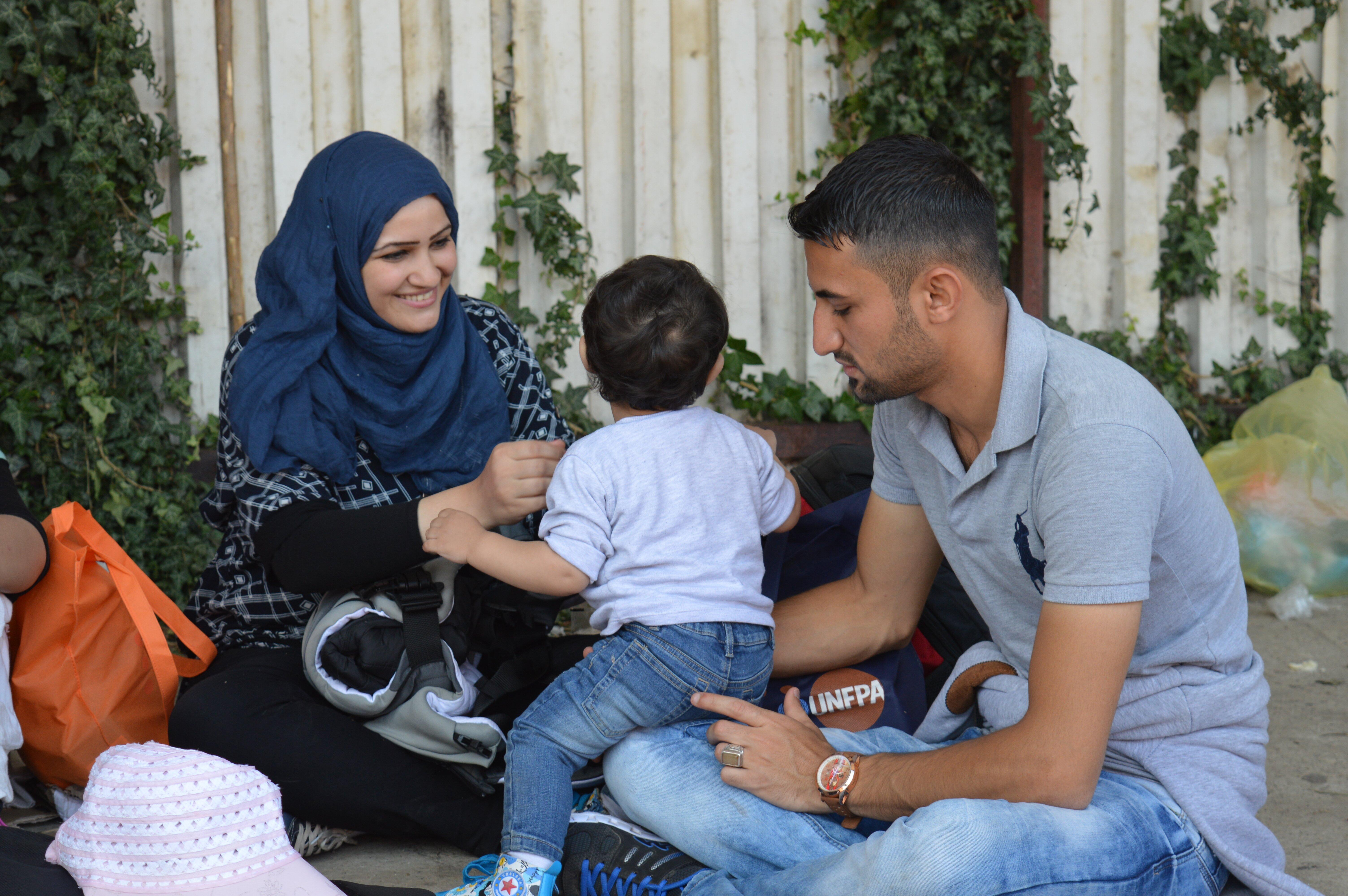UNITED NATIONS, NEW YORK/ISTANBUL – With hundreds of thousands of refugees and migrants moving from Greece through the Balkans to reach Western and Northern Europe, the countries along the transit routes need urgent support to ensure that women and girls have access to life-saving sexual and reproductive health care and are protected from violence, UNFPA, the United Nations Population Fund, said in an appeal for $4.2 million in humanitarian assistance launched today.
Some 4,000 refugees and migrants, the majority from Syria, arrive in Greece every day. Most of them move on through the former Yugoslav Republic of Macedonia and Serbia, with the intention of re-entering the European Union. Approximately 13 per cent of these refugees and migrants entering Europe are women – amounting to an estimated 70,000 along the Balkans route over the next six months, if current trends continue. Of those, some 4,200 are projected to be pregnant, and another 1,400 at risk of sexual violence.
“Thousands of women and girls, some of them pregnant, are on the move along the transit routes in the Balkans, often without access to basic hygiene and health services and with little protection from violence,” said UNFPA Executive Director, Dr. Babatunde Osotimehin. “As most of the women and girls are constantly moving, and often not registered, we need a swift, mobile and highly flexible response to meet their needs.”
UNFPA is working along with UNHCR, which is coordinating the refugee response and providing assistance to refugees in all countries along the route, including support for families, women and girls. UNHCR recently launched an appeal for $30.5 million for the initial response plan for the refugee crisis in Europe.
“We must ensure that women and girls can make their journey safely, and that they get the services they need to stay healthy along the way. These investments help save lives now, and many of them also help build sustainable capacities that the host populations will continue to benefit from in the future,” added Dr. Osotimehin.
Over the next six months, UNFPA plans to distribute 70,000 dignity kits to serve an equivalent number of women projected to move through the area during that period. The kits contain basic hygiene and health items that help women and girls preserve their dignity on the move. Mobile clinics, staffed with gynaecologists and nurses, will bring sexual and reproductive health services to refugees and migrants at strategic points along the ever-changing transit routes. Sexual and reproductive health kits will be provided to health facilities so that they have sufficient materials to ensure safe deliveries and help prevent HIV and other sexually transmitted infections.
UNFPA will also boost the capacity of governments and civil society partners in the affected countries to provide quality sexual and reproductive health services, both at primary health care and hospital levels, and to prevent and manage the consequences of sexual and gender-based violence.
***
For more information, please contact:
Istanbul: Jens-Hagen Eschenbaecher, +90 549 748 36 55, eschenbaecher@unfpa.org
New York: Omar Gharzeddine, +1 212 297 5024; gharzeddine@unfpa.org




